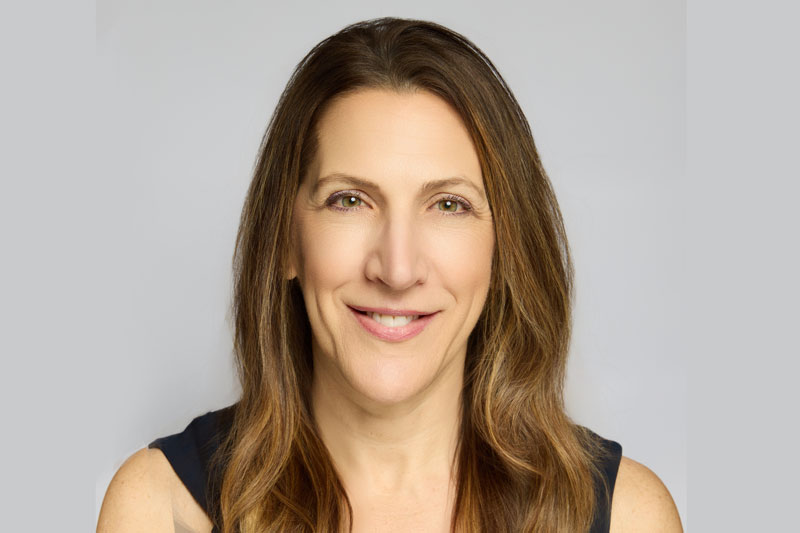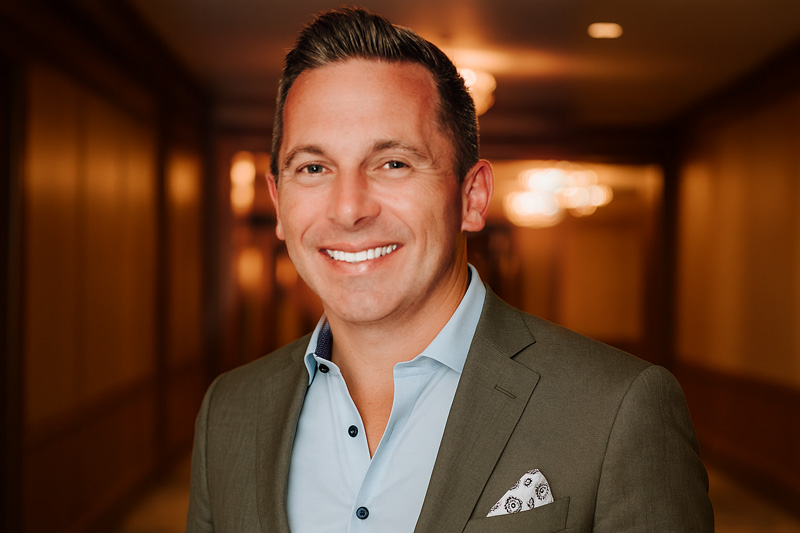Episode #351: Legal Strategy & Practice Growth: What Dentists Must Know to Thrive Without PPOs, with Brian Colao
Listen Now
Do you ever find yourself wondering when to prop PPO plans? Particularly when you want to hire a new associate? Many dentists usually lack confidence in choosing the ideal time to reduce or drop their PPO dependence with the least amount of risk when adding an associate.
However, there is no standard answer to this. Yet, you can consider and compare your options and make a choice.
In this episode, Gary and Naren discuss and compare your options regarding the time to drop PPOs when you’re adding an associate. One of the key points of the episode is that dentists may better manage these situations by having a robust digital marketing plan. Gary describes how Ekwa Marketing has improved his business and the success of many of his clients in the dental industry. If you’d like to discover more about how Ekwa Marketing can help you grow your practice, you can book a no-cost, no-obligation Marketing Strategy Meeting here!
Naren: Hello everyone, welcome to the less insurance dependence podcast. The official podcast of the reducing insurance dependence academy, www.rid.academy. Please consider this an invitation to become a member of RIDA as a gift from us in appreciation for your listenership. This is Naren, your co-host. Today’s topic is, I am adding an associate; when should I start dropping PPOs? Before we get into today’s topic, I have a quick announcement. We have a thriving dentist master class coming up on July 27th from 7 to 10 pm eastern time. That’s three hours of CE, and the topic of the master class is the 2.5-million-dollar practice model. Gary, can you comment on this master class, I know you did it once before, and people loved it, so we’re doing it a second time.
Gary: yeah, this is a master class we added to our master class titles last year and was based on a request from many of our listeners, and it was so popular that we decided to bring it back. So, the master class concept is that it’s a three-hour course that allows me to go into depth about a particular topic. So, it’s deep three hours you get three hours of CE credits we do this from 7 to 10 pm eastern time, and that’s this next one going to be on July 27th. By the way, that’s less than a week after this episode comes out, so hopefully, you’re getting you’re listening to this in time to register for that one, but the master class is, is, really cool, this one because while there are many successful practice models, I’m often asked by dentists hey is there a particular model that you like and when I’m asked that question directly I answer I said you know I really like the 2.5 million dollar practice, model. That would be two doctors that could be an owner and an associate doctor, or it could be partners; if you chose to go the partnership route, it has a nice strong hygiene component to it as well, so it’s a hygiene-driven practice and that’s a practice that will provide the ingredients of a thriving practice, which is a practice that provides personal professional and financial satisfaction. Personal satisfaction means you’re taking care of patients you enjoy, surrounded by a team you love, professional satisfaction means you’re doing more of the kind of dentistry you like to do, and then financial satisfaction is more, more self-explanatory, but that’s where you’re being rewarded handsomely financially for your care skill and judgment, and that model will do that and one more thing that that practice model will do. That practice model will allow you to achieve a wonderful effective work-life balance, and in that master class, I’m going to really walk through all the components of that, what that would look like, and whether that it’s your aspiration to develop that or you can simply find lots of information that you can take and apply to whatever model you’re pursuing, very, very, useful. The master class is a live stream, which means it’s done virtually, so you can attend from the comfort of your home or office, but it is live so you can stop and ask me questions and be interactive with it, and I think it’s the best of best of both worlds. Hey, go to thrivingdentist.com forwards slash master, master, class, come join us. That would be July 27th, 7 to 10 pm.
Naren: Gary today’s episode, I’m adding an associate; when should I start dropping PPOs. This came from one of the webinars we did recently, and I think quite a few people kind of had this type of question from all recent webinars. So, I’m looking forward to this conversation because I’m pretty sure this is something in the back of my mind of those growth-oriented dentists who are also looking for work-life balance.
Gary: you know this is actually a question there, and that comes up often in our webinars. It’s come up multiple times, you know, and it’s even come up in my client work. Hey Gary, I’m thinking about adding an associate. How does that affect my timing on when to start dropping PPO plans? And it’s a good question; it’s a good question. First of all, if you’re adding an associate, you want to make sure that you have enough demand to not only support your schedule but support the associate schedule as well. You, you, don’t want to have that be so tight that the associate is sitting around that would not be a favorable environment, so you want to have enough demand so that you can not only support your schedule but support the associate schedule as well and some of that has to be a little bit of a guessing game because what I’ve often heard say from clients is, Gary I’m way too busy for one doc. I feel like I’m, you know, really the proverbial hamster on the treadmill. I’m way too busy, but I don’t know if I’m I, I, found a good candidate he or she would like to work four days a week. I’m just not sure I have enough volume to support that. That’s a fair situation, and that comes up, you know, from time to time but now let’s put in the mix of or, or, the added dimension of and I’m also going to be dropping PPO plans. I want to make a really good case for you dropping PPO plans before you hire your associate to let me take a minute and explain that, and there’s no right answer. You could do it either way. You could bring your associate on and then drop plans later, or you could do it before. I’m going to make a case right here for why you might want to do it before, and here’s, here’s why. One of the things we do in our six steps to successfully draw PPO plans is a master digital marketing and master digital market, and the purpose for that is really twofold we’ve got to replace any patients we might lose; we drop PPO plans, and secondly, we need to place the flow that has historically come in from those plans. So again, to use an example, let’s say it’s Delta that we’re dropping and, and, let’s say we’ve got 500 patients on Delta, and we want to, you know, have a calculation of how many of those delta patients are going to lose, typically we calculate that based on experience to be 10 to 15 percent of your patient base meaning you’ll keep 85 to 90 percent of them so use the higher number to be conservative and say you’re going to lose 15 percent and Naren if I do my math right 15 of 500 is 75. Did I get my math right?
Naren: right
Gary: so, so, calculated that you’re going to lose 75 patients from, from, Delta. By the way, every dentist I share this with is absolutely convinced they’re going to lose more, but we have extensive data over hundreds of practices to be able to project this based on experience, not just guesswork. So, there’s 75, but let’s say this office also gets 10 new patients a month from Delta; you’ve got to replace that flow because as soon as you resign, you’re going to that flow is just cut off like a tourniquet. So, there on an annual basis would be 120. So just to calculate this in the first year, you’re going to need 195 patients to replace the 75 you’re going to lose and the 120 that came in from the flow in the year. Did I get my math right Naren?
Naren: you got it right
Gary: yeah, and I want you to do that ahead of time before I hire an associate because now we’re going to solve two problems. We’re going to replace any we might lose, and you’re going to ensure that you have enough demand for your associate; win-win, right?
Naren: Right
Gary: now and how to do that, in a nutshell, follow my lead, jump on my back, use the same marketing agency that life smiles use that we recommend to our clients, EKWA Naren, can you put a link in the show notes for this episode so that any of our listeners can schedule a marketing strategy meeting with EKWA. By the way, if you’d like to just go to that link, it’s a www.ekwa forward slash MSM, and that stands for a marketing strategy meeting, and you can talk to EKWA. You’ll talk to Lila, Lila Stone; Lila can share with you what they’ll do, what the costs are involved, how you’re performing currently, and how you can massively improve your results with marketing. So that’s why I’d suggest doing it sooner, but there’s another benefit of resigning before you add an associate, and this is often overlooked; here’s the other benefit. Now when you hire your associate, this will be a fee-for-service practice the associates joining or, or, either fee-for-service or radically reduced PPO; remember, you don’t have to go all the way.
Naren: Right
Gary: you may end up you may start with 20 plans and get down to one or two that could be a success, or you may get so emboldened by the success you’re experiencing as you go fee for service, and by the way, if that’s your goal I’m going to be your biggest cheerleader but imagine that it is fee-for-service how many associate ships out there Naren do you think to exist for a fee for service associate dentist, how many in the universe of associateship job postings, how many of those do you think are fee for service?
Naren: I think less than ten percent, right, maybe more like five percent.
Gary: they’re virtually none
Naren: right
Gary: they’re virtually none; they don’t exist. It’s the unicorn job
Naren: right
Gary: you know it’s the mythical unicorn. You know the job, and that’ll allow you to attract the best possible associate one of the mistakes that I see made and it has a debilitating effect on the practice when an office hires an associate, has a revolving glass door of associates, you know recently a doctor shared with me after one of our webinars that he’s really had trouble retaining, he doesn’t have trouble hiring him, but he has trouble keeping them, and he said I’m, I’m, embarrassed to admit that I’ve had six associates in the last two years. Well, something has to change because that’s the last thing in the world that you want is to have a revolving glass door because that has a way of affecting the practice adversely every time that happens. So, you want to hire the best and then keep them as well keep him or her as well, and I believe that the model of bringing an associate into a fee-for-service practice will allow you to attract and keep the best possible associated dentist. So that’s my case for doing it ahead of time and doing it before you hire your associate for all those benefits that I have that I mentioned, and I know what some of you are thinking. Some of you are thinking, Gary, I just think I’m going to lose way more patients, and that hasn’t been our experience in hundreds of practices that hasn’t been our experience and secondly, it is an eminently solvable problem because it can be solved through marketing, and I honestly feel like today in terms of marketing, I feel like I have my hand on a spigot and I can turn it up, or I could turn it down turn it up and get more new patients to turn it down and get fewer new patients, whatever the circumstances demand and that is not a situation I have felt historically you know in in in practice. I remember when Paul and I bought life smiles in 2007, it felt like marketing was some voodoo dark science; it was some mystery. It’s like you throw stuff against the wall, and some stuff works, and some doesn’t help. We’ll keep doing the stuff that does and tweak the stuff that doesn’t, and stop doing the stuff that doesn’t work. That’s what it was. It felt like just a big crazy experiment, and I feel very differently about that today Naren, thanks to you and your team helping us master digital marketing, but that’s my answer is, drop the plans before for all the reasons we’ve mentioned, and at the same time make sure that we’ve ramped your, marketing up because that’s going to solve the problem of replacing any we might lose. It’s also going to solve the possible problem, or am I busy enough to support an associate doc. Now there’s one other dimension I want to talk about in this. Let’s say you choose to go the other route, and you choose to bring an associate on, and then see how it goes before you start dropping plans. One of the things that you’ll encounter is a situation with Delta in particular that that may create a mess for you to do that, and that is that many of you have likely you’re likely a delta premier PPO provider, Delta has given you premier stats like that’s a good thing you know they use the word premiere oh that’s good right well yeah it still sucks, but in most states, Delta has come in and said if you’ve graduated after a certain year, no new doctors will be grandfathered into premier status. So, they’re not let in under premier, and it depends where you’re at in what state and so on, but most newer docs after they graduate after a certain year are not able to be premier. So those docs would have to go under PPO, and those PPO fee schedules are horrible; they’re a 45 to 50 discount, and so now if your premier doctor as the owner and your associate is PPO, it creates a big mess in your practice. It’s a big administrative mess because what happens if you know you end up providing care to a patient that was first seen by your associate? It’s a real mess because then you’d be forced to accept PPO fee schedules, and that would not be a good situation at all, and so it’s very messy, very tangly to have your associate be a delta PPO provider and for you to be premier and I’ve seen that situation literally blow up in practices and create all kinds of headaches, and the common reaction has been I I really didn’t see this coming, I should have predicted this, but I didn’t see it coming now we’ve got to clean up the mess, and basically, the way to clean up the mess is resigned from both of them, resigned from PPO and also resigned from the premier. Naren, what do you think you’ve been listening to here? What do you think about my answer to when should I start dropping PPO plans of managing in an associate doc.?
Naren: yeah, I think I, I, like, I like the points you made. I think I like the idea of going on the offense because you want to attract patients who are not just coming to you because you’re on the PPO. So, you don’t find yourself in a kind of an "I’m stuck" situation where you know you feel like you’re stuck and you have to live with it, and I think the biggest thing I like about your strategy of dropping PPO plans is you know as an associate a lot of people will feel like you know they’re lucky to be part of a practice where they’re not giving up half of what they make or you know forty percent of what they make.
Gary: because they have to be like they have to pedal like the hamster on the wheel \
Naren: exactly
Gary: just like you do and, and, that affects their income and their whole enjoyment of the profession, but you’re right.
Naren: yeah, I mean, yeah, if they’re making a thousand dollars and PPO only pays 600, they’ll make 30 percent of that. So, they’ll make 200, you know, 180 dollars as opposed to if they get the whole thousand dollars, they will make 300 dollars, so that’s an extra 120 dollars versus, you know which is you know quite a bit.
Gary: Yeah, that’s a short conversation with your associate doc. Would you rather make eight? Would you rather make three hundred dollars for this procedure, or would you rather make 180? The associate will look at you. He or she will look at you like you’re crazy. This is a trick question, right that’s not; that’s exactly how it works. Now
Naren: Right
Gary: one more thing, many dentists are afraid that they’ll lose too many patients. first of all, that doesn’t happen, and I’ll ask you to take, take that at face value if you’ve done all the prep, it won’t happen
Naren; Right
Gary: but secondly, there’s an inherent mindset that I want to change for you. Recently we did book club for our clients, my coaching clients, and the book that we read was the book abundance by Peter Diamandis; my point in reading this book and sharing it with our clients is that abundance is a mindset. It’s a mindset that I want you to embrace from this moment forward. I want everyone to listen to this to embrace an abundance mindset because here’s what’s the opposite of abundance, Naren?
Naren: scarcity
Gary: scarcity, so abundance or scarcity, which one would you rather have? Again not a trick question. Take as long as you like I want an abundance mindset.
Naren: right
Gary: but here’s what the scarcity mindset is if I go out of network, I can’t find enough patience, that’s the scarcity mindset
Naren: right
Gary: flip the switch. The abundance mindset is I have 100 percent confidence that I can find enough patients that are interested in their health that would love to be part of this practice as a pa as the patient that’s abundance mindset. The scarcity mindset is I can only attract people that are interested in insurance.
Naren: right
Gary: and that’s just not accurate look at your colleagues and look, they’re, they’re, in the minority but look how many of your colleagues have successfully built fee-for-service practices. You know, recently I did a mastermind with our clients, and our mastermind is where you know we, we, meet in small groups virtually, and the concept of a mastermind is all of us are smarter than any of us, and one of our newer doctors to the mastermind told Gary one of the things I love about these masterminds is I have some mentors here and my colleagues that are proving to me that this can be done, because they’re saying hey I did this the only regret I have is I didn’t do it sooner, and I’ve had a number of ours, our, newer clients say, god I love that perspective of embracing an abundance mindset around this and having the model of if it’s been done before it must be possible. In any case, guys, I hope I’ve answered that question; when should I start dropping PPO plans if I’m considering adding an associate. Well, on that note, I simply want to thank you all for listening to the less insurance dependence podcast; we appreciate each and every one of you. Hey, if you haven’t gone, if you haven’t done this, I have a favor to ask. Jump on iTunes, type in less insurance dependence, and write us a review. A review on iTunes helps more dentists find us when they’re looking for podcasts, so write us a review if you would. If you haven’t already done that, we would really appreciate that. On that note, let me simply thank you for the privilege of your time and tell you we’ll look forward to connecting with you on the next less insurance dependence podcast.
 One of Gary's most significant achievements as a dental practice management coach is transforming his own practice, LifeSmiles, from one that was infected with PPO plans, no effective marketing strategy, and an overhead of 80% to a very successful dental practice that is currently one of the top-performing practices in the US.
One of Gary's most significant achievements as a dental practice management coach is transforming his own practice, LifeSmiles, from one that was infected with PPO plans, no effective marketing strategy, and an overhead of 80% to a very successful dental practice that is currently one of the top-performing practices in the US.
 As CEO of Ekwa Marketing, Naren has over a decade of experience working with dental practices and helping them attract the ideal type of patients to their practices. It is his goal to help dentists do more of the type of dentistry they love with the help and support of effective digital marketing.
As CEO of Ekwa Marketing, Naren has over a decade of experience working with dental practices and helping them attract the ideal type of patients to their practices. It is his goal to help dentists do more of the type of dentistry they love with the help and support of effective digital marketing.



